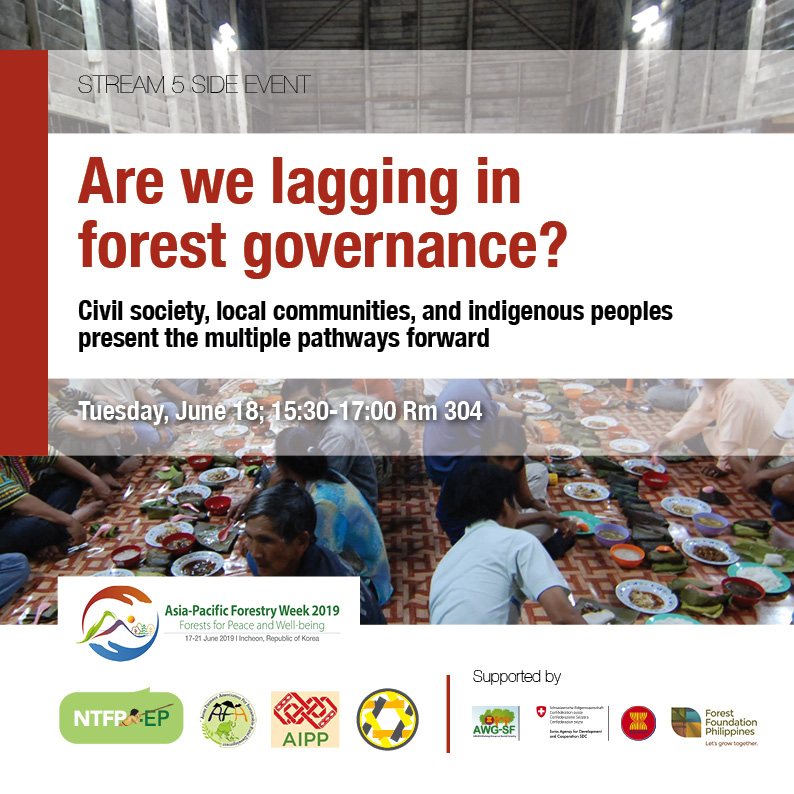Meaningful engagement of CSOs, local communities, and indigenous peoples is a key ingredient to successful forest governance. There have been numerous researches and case studies that support this key message. With certain Asian national governments taking a right-wing stance in political direction, the prevalence of unsustainable initiatives in forest landscapes and mega-developments challenges and issues, how can responsible, inclusive and proactive forest governance be championed? What mechanisms can be unlocked and tapped?

In this session, key civil society organizations, local communities and indigenous people’s representatives will present, and share their experiences, challenges, perspectives, and lessons learned in forest tenure and access rights and forest governance.
Asian Farmers Association shared their experience in evidence-based advocacy movements using the Land Matrix in tracking forest land grabbing, ANGNA India spoke about their challenges and responses in their fight together with the indigenous peoples to fully implement the Forest Rights Act, and PACOS Trust discussed facilitating and hindering factors in pushing for establishing ICCAs through the support multi-stakeholder working group Sabah Social Forestry network.
Selected CSOs and indigenous community representatives provided their responses to the main presentations and a question and answer will be facilitated at the end of all presentations and responses.
KEY MESSAGES
- Gaps and lags in forest governance still exist because of several challenges: inconsistencies in data, lack of capacity among local community and indigenous peoples to engage in multi-stakeholder governance, weak support from the government in recognition of customary land tenure and ICCAs in some countries, and lack of trust and confidence in government-civil society collaborative action.
- Despite these challenges, there are on-going initiatives by the civil society organizations from various local, national and regional levels.
- People and forest cannot be disconnected. The key to maintaining this innate connection is to sustain and increase partnerships, building trust and confidence within and among various stakeholders. The government, civil society, local communities, and indigenous peoples (most especially women), should be effectively and equally engaged as key stakeholders in policy development towards effective forest governance.
LIST OF SPEAKERS
Mr. Prem Singh Tharu, Program Officer, AIPP
Ms. Olivia Melendrez, Area Coordinator, NTFP-EP Philippines
Moderators
Ms. Femy Pinto, Executive Director, NTFP-EP Asia
Opening remarks and key messages
Ms. Lorraine Angelica Ablan, Land Matrix Coordinator, AFA
Experience in evidence-based advocacy movements using Land Matrix in tracking forest land grabbing
Mr. Remish Ekka, Executive Director, ANGNA India
CSOs and indigenous people’s challenges and responses in advocating for the full implementation of FRA
Mr. Gordon John Thomas, Technical advisor, PACOS Trust
Multi-stakeholder working groups (SASOF) as a support mechanism for establishing ICCAs
Ms. Noraeri Thungme, Vice Chair, Indigenous Women Network in Thailand
Role of Indigenous women in the forests: promoting traditional governance system to safeguard forests
Mr. Myo Ko Ko, Programme Manager, Advocacy and Networking, POINT
Myanmar Indigenous people’s perspective on the global environment facility
Dazzle Labapis, Program officer, NTFP-EP Asia
Indigenous people’s perspective on the global environment facility





